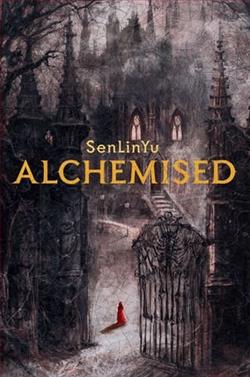Page 53 of Knowing Mr. Darcy
At any rate, Elizabeth was now readily informed about all that had happened between her sister and Mr. Wickham.
It seemed that Mr. Wickham had become quite the guest at Longbourn. A favorite of Mrs. Bennet because he teased her in much the same way he teased all women even though she was old enough to be his own mother and quite very married, he was often invited for dinner or afternoon tea. He was with them all so much that Jane said he had begun to feel like a member of the family, rather like the brother that none of them had ever had.
She said that Wickham confided in her that he had felt as if he’d lost his own family.
After the business with Miss Darcy, his own father had essentially disowned him. He’d once been doted upon and indulged by the elder Mr. Darcy, but that man had died. The younger Mr. Darcy hated him. He was alone and frightened in the world, and he felt as if he’d found a home with them in Longbourn.
“Lizzy, sometimes he talked as if we were alreadymarried,” said Jane. “As if he assumed it was a foregone conclusion.”
“And then he went off with this Miss King person?”
“Oh, heaven knows, we would have had to eat air if he had married me,” said Jane. “There would have been little for us, and I do understand why he must do what he must. It is important not to starve.”
“I know you cannot hate him,” said Elizabeth. “But I think I shall hate him for you.”
Jane laughed. “Must I hate Mr. Bingley for you, then?”
“No, I am doing just fine hating him all on my own,” said Elizabeth, laughing, too.
It was only to Jane that Elizabeth admitted there was any merit to anything that Mr. Bingley had said, that she did feel strangely drawn to Mr. Darcy.
“When you were with Mr. Wickham,” Elizabeth said quietly, “did you ever feel… did you ever sort of notice his, erm, his physical presence?”
“Yes?” said Jane.
“But did it ever entice you?”
“Yes?” said Jane, as if this was quite obvious and everyone who had ever been in love with anyone had felt such a thing.
Elizabeth wondered if the fact that she had not been enticed by Mr. Bingley had perhaps been more of a problem than she had thought.
Well, it was all over now. She was not to marry Mr. Bingley. She was free of all of that.
Now, she was in Kent, staying at the Hunsford parsonage. Now, she and everyone in the party were being invited to dine at Rosings, with Lady Catherine, in her very large house, and now, there was no point in thinking about men at all, enticing or not.
The dining room in Rosings was a grand, grand room, very large, with a table that would seat at least forty people. For this dinner, they all sat at one end of it.
Lady Catherine presided at the head of the table, a woman who had likely never been exactly beautiful, but hadalways been handsome in a fearsome way. Even now, she had a presence that seemed to make one wish to sit up straight and enunciate one’s words.
She conducted what amounted to a bit of an exacting interview during the first time they dined there. Did the Misses Bennets play and sing, she wished to know.
Elizabeth said, “Oh, badly, very badly, I’m afraid,” a sort of joke.
Lady Catherine did not laugh. “One does not get better unless one practices. And you, Miss Bennet, you also play?” This was directed at Jane.
“No,” said Jane. “I’m afraid I don’t.”
“Well, you must do something else, then? You draw? Or paint?”
“I’m embarrassed to say that I do not,” said Jane, bowing her head. “What your ladyship must be thinking. Dreadful, really.”
Lady Catherine narrowed her eyes, tilting her head to one side. “Well, this is the fault of your governess, I think, Miss Bennet.”
“We never had a governess,” said Jane.
“No governess?” Lady Catherine had to stop and take a drink, she was so overcome by this idea.
“We had books,” put in Elizabeth. “All the masters one might need to instruct anybody in anything at all. If a person wishes to be idle, however, she will be.”















